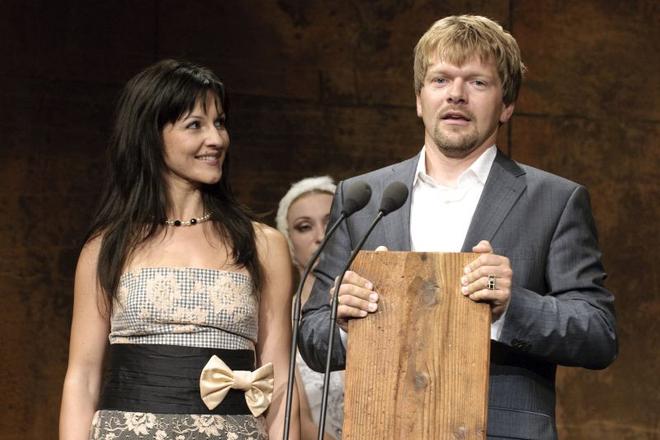SLOVAKIA'S Dosky Awards, recognising the best creative activities in the sphere of professional theatre, were hosted for the 14th time by Divadelná Nitra. The top prize-winner of the 2008/2009 season was Orfeo ed Eurdice staged by the Slovak National Theatre in Bratislava, directed by Mariusz Treliński. All the award-winners were chosen by 34 distinguished panellists drawn from the Theatre Institute, the Theatre and Film cabinet of the Slovak Academy of Sciences, the College of Music and Dramatic Arts as well as from among other colleges, reviewers and critics.
A Dosky can be awarded for creative activities in all genres – drama, opera, music, puppet theatre, ballet and modern dance and the award is given regardless of the nationality of the artist as long as their artistic performance was premiered in a Slovak theatre during the previous season.
Boris Kudlička claimed a Dosky for best stage design, also for Orfeo ed Eurdice. The prize for the best director went to Roman Polák for the drama Anna Karenina which also garnered an award for Peter Čanecký for best costumes. The best actress of the season was Jana Oľhová in the staging of Sergi Belbel’s play Mobil staged at the Žilina Town Theatre and Yevgenyi Libeznyuk claimed the best actor award as Lopachin in Anton Chehkov’s play the Cherry Orchard performed at the Andrej Bagar Theatre in Nitra. The award for best music went to Marián Čekovský for the drama Medeia staged by the State Theatre in Košice. The Discovery of the Year award went to Kamil Žiška and Zuzana Palenčíková for the concept of the staging of And We Will Whisper which premiered at the Slovak Chamber Theatre in Martin.
Pavol Remenár and Helena Szabóová from Orfeo ed Eurdice cast each accepted the award in the Andrej Bagar Theatre in Nitra. They told the SITA newswire they consider this opera’s success to be unique as it was predicted to be a failure, especially in the new theatre building and in a new production. Quite the opposite, it was a huge success even with a young audience. According to him, director Treliński worked three hundred percent for five years and “the result was a hit”. The work of Christoph Willibald Gluck, now two hundred years old, feels very modern. It was made in cooperation with the Warsaw Opera – which shows how international cooperation can enhance the domestic scene.



 Helena Szabóová (L) and Pavol Remenár accepting this year's top Dosky award. (source: TASR)
Helena Szabóová (L) and Pavol Remenár accepting this year's top Dosky award. (source: TASR)